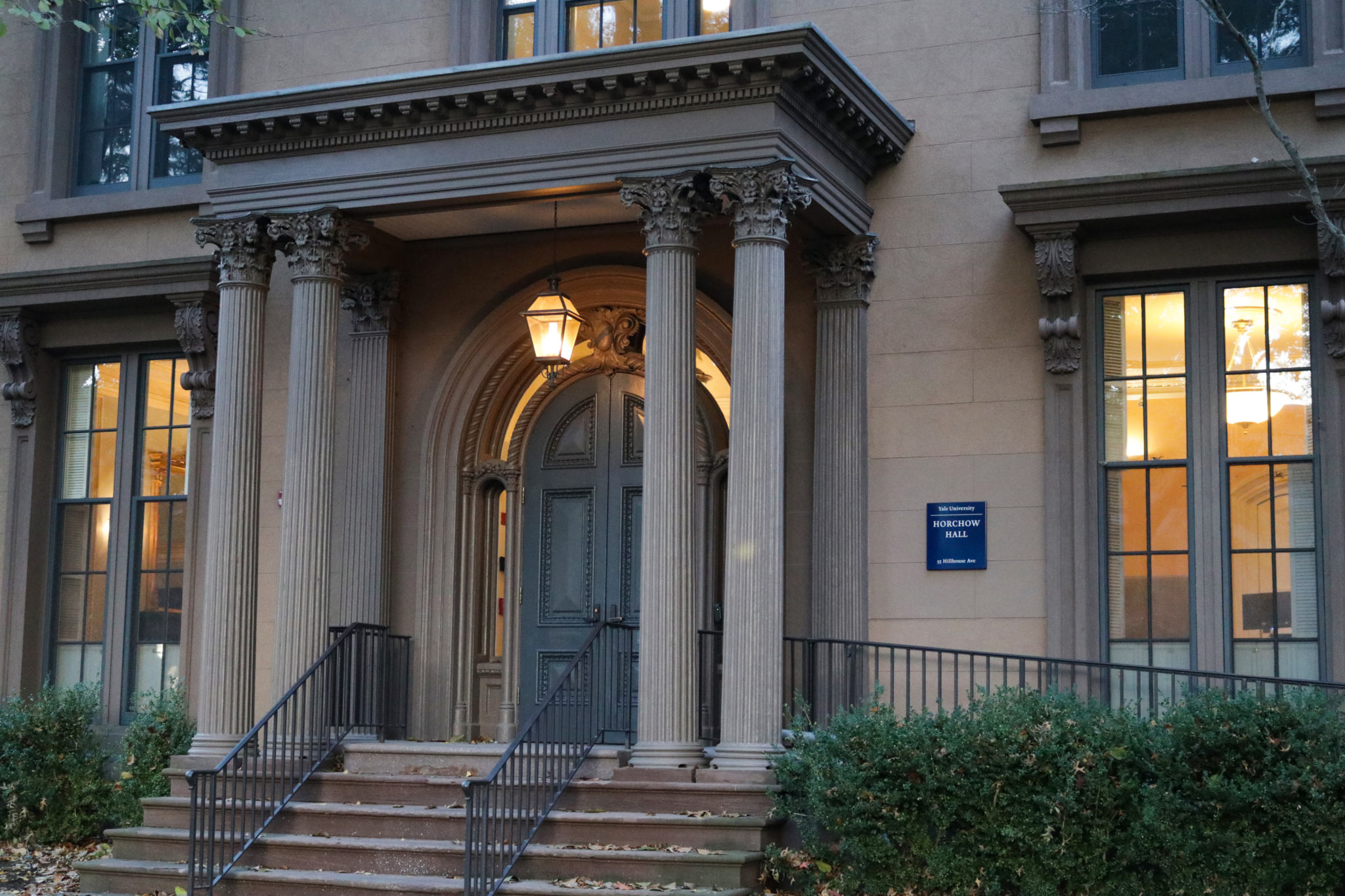
Kai Nip
The focus of the 30 audience members in Horchow Hall on Thursday afternoon did not waver from Mohamad Junaid, an assistant professor of anthropology at the Massachusetts College of Liberal Arts, as he recounted his research on a 2014 flood that ripped through Kashmir, the northernmost region on the Indian subcontinent.
Throughout his five years of research on political turmoil in Kashmir, Junaid primarily focused on a devastating September 2014 flood and studied how that disaster fueled anti-India sentiments in the area. The territory made headlines once more this August when the Indian government stripped Kashmir of its statehood and significantly increased its military presence there. There have been insurgent groups operating in Kashmir for nearly three decades, but according to Junaid, the flood in 2014 substantially influenced the independence movement that is ongoing today.
“My work at that time was mainly focused on the self-determination movement in Kashmir, and it switched to this disaster, and how the flood accentuated that feeling,” Junaid said during the workshop. “The flood was the spark that led many young people toward militancy.”
Junaid presented his work as part of the Political Violence and Its Legacies Workshop Series, coordinated through the Department of Political Science. The workshops meet bi-weekly and focus on analyzing research concerning political violence from a variety of locations around the world. According to Rohit De, associate professor in the Department of History and one of the workshop’s faculty directors, the program strives to bring together psychology, anthropology, history and political science. He added that the workshop aims to create primarily student-led conversation across these studies. For Junaid’s workshop specifically, De praised the scholar’s work and believed that — given the current crisis in Kashmir— hearing about Junaid’s research would prove a particularly valuable experience for the participating students.
“[Junaid] represents a sort of new generation of scholars,” De said. “I think one of things [the workshop] is meant for is training future scholars, and showing them a pluralism of approaches to research.”
For Samah Rafiq, a non-degree visiting student in the Fox Fellows program and a Kashmir native, the workshop hit close to home, even 7,000 miles away from it.
As someone who has followed Junaid’s research since it began, she said she was thrilled to see him speak in person. Rafiq also strongly recommended the workshop series to the larger Yale student population.
“I think I will keep coming back to these workshops, because I like how they combine disciplines,” Rafiq said. “This workshop was a standout [for me].”
Junaid said he thought the discussion was extremely productive. He said these workshops are beneficial as they can help turn an underdeveloped research project into a more publishable final product. Kashmir has always been seen through a particular, one-sided lens, Junaid said. As such, he said one of his goals for the workshop was to offer another, perhaps unexpected perspective on the issue to colleagues and students in the field.
Once all was said and done, Junaid said he was confident that he had achieved his goal.
“Much of the work that is brought here is primarily of questions that are politically salient and cover areas with ongoing political violence,” Junaid said. “These workshops help educate a wider public about these questions.”
The next event in the Political Violence and Its Legacies Workshop series will take place in Horchow Hall on Thursday, October 24. At this event, Alex Fattal of Penn State University will lead a workshop entitled “Parsing Participation: The Case of Shooting Cameras for Peace in Colombia.”
Thomas Birmingham | thomas.birmingham@yale.edu







